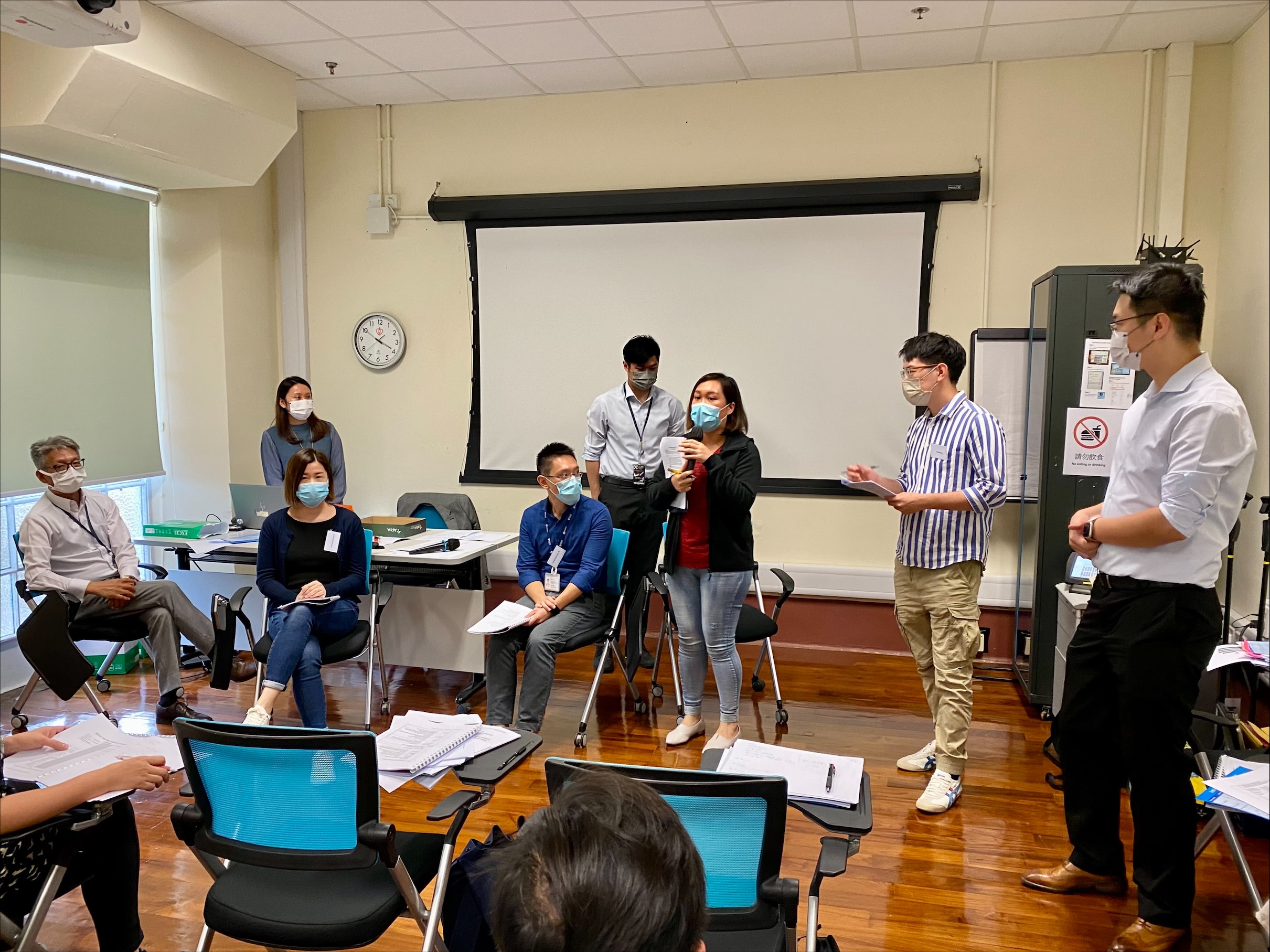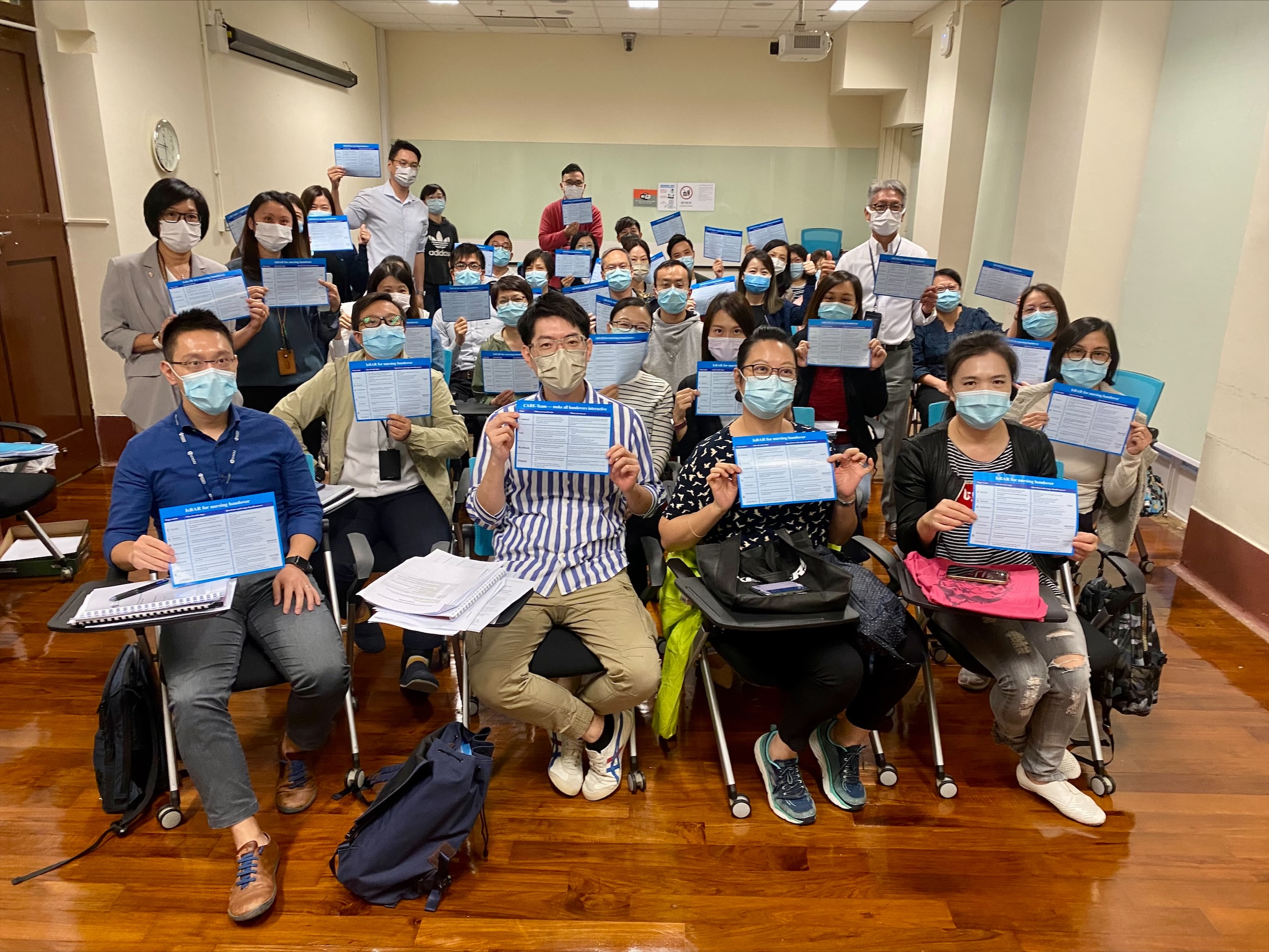Clinical handover is one of the most pivotal tasks in nursing practice—not only does it contain vital information about the patients but also represent the transfer of responsibility and accountability in patient care. Dr Jack PUN, Assistant Professor at CityU’s Department of English recently conducted a simulation training with 40 Hong Kong nurses on effective nursing handover.
 Photo 1: Participants are having role-play simulation on handover communication.
Photo 1: Participants are having role-play simulation on handover communication. During the workshop, Dr Pun presented the two commonly adopted, standardised handover protocols, namely, the ISBAR (Identify, Situation, Background, Assessment and Actions, and Recommendations and Readback) protocol which focuses on the informative dimension of handover, and the CARE-Team (Connect, Ask, Readback, and Engage) framework that promotes nurses’ interaction. Highlighting the elements of “Readback” and “Engage”, he encouraged local nurses to actively seek clarification via closed-loop communication to ensure both the outgoing and incoming parties understand what the tasks are and hence provide quality patient care. A series of role-play simulations were carried out to allow the participants to learn through real-life scenarios in an interactive way.
 Photo 2: Forty local nurses participated in the nursing handover communication training.
Photo 2: Forty local nurses participated in the nursing handover communication training.Dr Pun has been working closely with the Hospital Authority on his project entitled “Building Effective Nursing Clinical Handover Communication: Improving Patient Safety” to develop the training materials to uplift local nurses’ clinical handover and communication skills. The project targets to invite 600 nurses in Hong Kong to participate in the four-hour training programme from December 2021 to May 2022. Interested nursing professionals are highly recommended to check this project out on effective handover communication.
Cover photo: Dr Jack PUN introduces the two communication protocols on nursing communication.